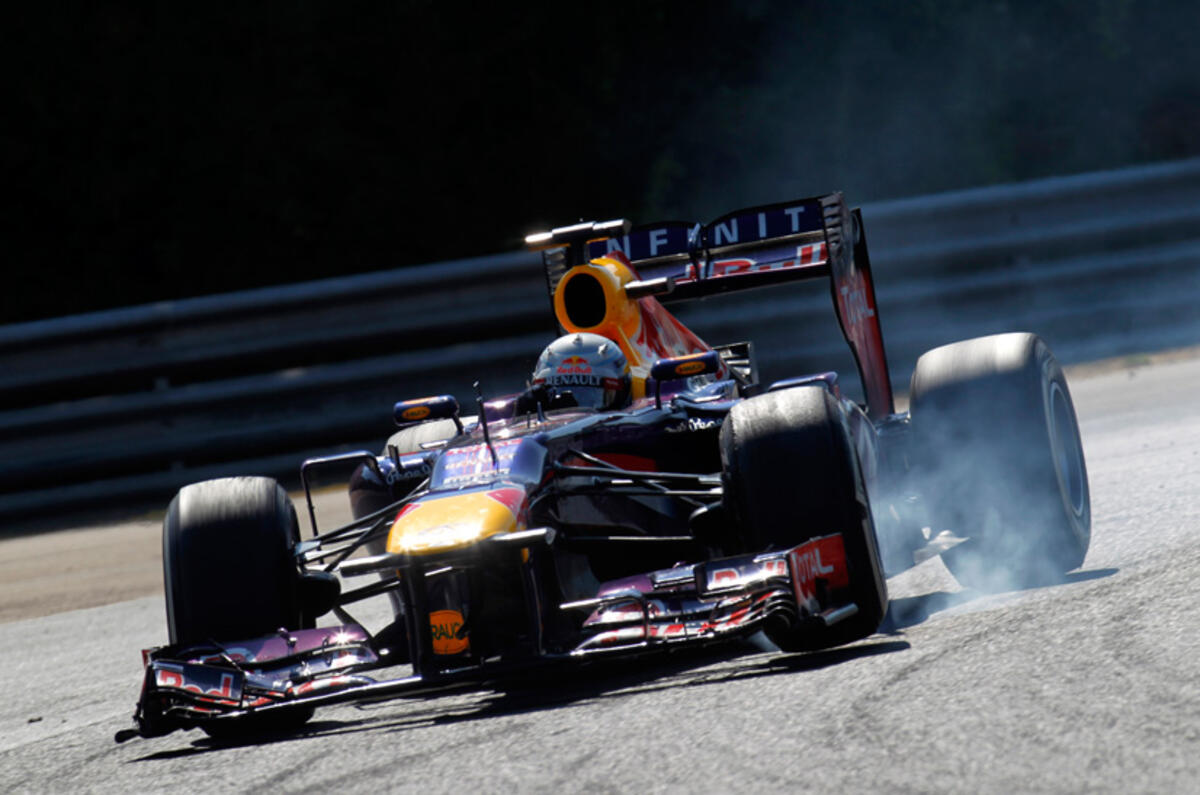This is the time of year when some sections of the F1 media have little to write about, because the main players have taken time out and are away on holiday during the annual factory closure in early August.
Consequently, this has resulted in all manner of rumours flying around, to such an extent that it feels like all the top drivers have been linked to all the top teams. The recent days have seen Fernando Alonso linked to Red Bull Racing and Sebastian Vettel to Ferrari. Kimi Räikkönen has been linked to Red Bull, Ferrari and his current employer, Lotus F1 Team. It is all rather out of control.
What is fairly clear is that Räikkönen has yet to decide on his plans. His representative, Steve Robertson, was at the Hungarian GP in deep conversation with Lotus boss Eric Boullier. Both declined to talk about what has been going on, but the most likely explanation is that Räikkönen wants to know more about the strength of the team next year.
Lotus has taken on some new shareholders recently and rumour has it that the deal is now completed and money is flowing into the team. At the same time, there are questions about whether Renault is going to adopt a more structured approach to its F1 involvement and put some money into Lotus.
Since Renault's own team was sold to Genii in the wake of the Singapore Scandal in 2009, Renault’s profile in Formula 1 has gone through the floor, despite the fact that its engines are winning races with Red Bull Racing and Lotus.
Red Bull’s livery features a lot of badging for Infiniti, the sub-brand belonging to Renault’s global business partner Nissan, which is providing the team with a substantial pile of cash.
Lotus, on the other hand, has very little Renault branding because Renault has not been willing to pay. There are further complications in that the Caterham team is keen on a discount engine deal, because it is involved in an industrial alliance with Renault to co-develop a new sports car.
It is clear that Renault could probably save some money if the various arrangements were streamlined and interested parties, such as oli company Total, put their money into a central pot, rather than piling it into individual teams.
This would require different branding strategies across the board, but Renault’s media exposure would increase once again and the F1 programme would suddenly become much more cost-effective.



Join the debate
Add your comment
I don't think so they will
I don't think so they will tie up for it.
Didn't they try to brand one
Didn't they try to brand one of the sub Renault teams, recently, with Lada. The most effective Renault F1, was the light blue / yellow, Alonso, Telefonica.
Confusion reigns
Whether Clio and Megane drivers even care what happens on the track is another question altogether, but supposing they do then it seems that, as one of the most successful names in F1 over many decades, Renault has never got the cachet and visibility its expenditure of hundreds of millions of euros might perhaps warrant. The company's longstanding indecision as to whether it should be a team, an engine supplier, or now whatever it is relative to the outfit we're calling Lotus, certainly doesn't help. But neither does its status as a maker of mid-market family cars. If only in the weird world of F1 it seems appropriate for 'premium' brands to be mixing it with Ferrari - even though most of their line-ups comprise saloons and SUVs and so forth - but Renault is perceived only as mass marketeer (by non-petrolheads, I mean, and regardless of its miniscule sales currently) and I doubt whether it even occurs to Mr or Mrs Average that the company might have enjoyed such an illustrious career while grand prix racing. Also, as I said at the top, even if it did occur to them they might think it a complete irrelevance - and in this they could definitely have a point.
Why not use a different brand name for each team?
Of course what they could do is to pair the Renault brand with Lotus and use the Dacia name for Caterham, thereby using the same engine to promote three separate road car divisions. Dafter things have happened in F1.